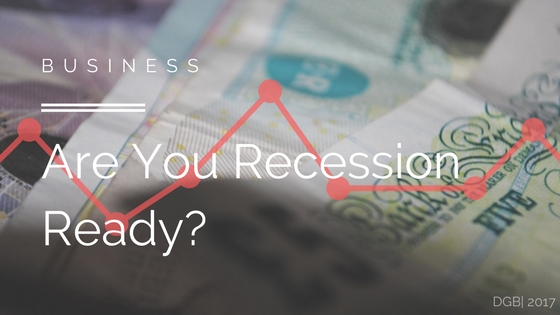Around a year ago it was predicted that the UK economy was going to be plunged into financial chaos and recession as a result of voting to leave the European Union. Fast forward 12 months and we now know this not to be the case.
Granted the growth of UK GDP has slowed somewhat, with various forecasts being revised down. But, we are still a considerable distance away from the predictions a year ago, nowhere near a recession.
That being said, there are things going on around the world which could actually pose a more immediate threat to the UK economy than Brexit. One example being across the pond and the utter chaos that is the Trump presidency. Nothing has been achieved since he took office, despite his many promises during his campaign. Many are now starting to say that if things don’t turn around soon, real damage will happen to the US economy, and when America sneezes, the rest of the world catches a cold, so the saying goes.
So the question is, ten years after the Great Recession, is the UK window and door industry prepared to face another financial down turn, and has it learned any lessons from the previous crisis?
Saving for a rainy day
The last recession saw many glazing companies close their doors for good. The industry shrank by the thousands. Some would argue the deadwood was cut away. But no one escaped unscathed. My hope is that just ten years on from the crisis, our industry has a more acute awareness of the importance of profit margin and the building of a cushion in which to survive on.
Very much like a regular person would set up a savings account to put a little away each week or month, I would hope that installers, fabricators, syscos and all others in between have done the same thing. Built up a war chest to draw upon should things go south. Money to be used to keep people in jobs and the lights on. Or to be used to increase marketing, advertising and to attract new business.
I have found that since the last recession, savings aren’t always things companies in our industry have done all that well. The day to day running of our companies takes precedence, which you can understand. But given the fragile nature of things right now, having that buffer could come in very useful should another crisis come our way.
But what could cause the next recession?
Bubbles ready to burst
I tend to watch a lot of business news. Bloomberg, CNBC, Business Insider etc. It gives me a useful insight into the financial world and has helped me fine tune my knowledge of how this part of the world works. If like me you watch similar channels, you’ll know that there is a worryingly large number of bubbles in the financial world that now appear ready to burst, and burst with a bang.
You might be forgiven for thinking that domestically the biggest recession risk is Brexit. It’s not. Even the most pessimistic forecasts still show the UK growing by around 1.6% this year and similar to next. It is once again global factors which could send the wheels coming off.
Bonds for example. The bond market is massively overvalued. Bonds are like IOU’s, issued by governments and institutions. When you buy a bond, this is that institution borrowing money from you. Bonds come with yields, interest rates that lenders like a government agrees to pay the buyer of that bond. These fluctuate over time. More recently however, bond yields having only been going up in value, meaning the interest rate payments made to buyers of bonds going up. In other words, if I was to buy a bond from the government and the yield went up, they would have to pay me more. Sounds great. Sounds great to a lot of people, so lots of money from all sorts of places has been pouring into bonds where people, investment funds and companies have been hoping to take advantage of the higher yields. This is effect is a bubble, and a big one at that.
If this bubble bursts, that is going to be a lot of invested money that people and companies have betted on making them a lot of money over the long term. If that yield starts to drop, you can guarantee that investments in bonds will be pulled immediately out of the market. In effect pulling the rug from underneath the governments and institutions that have relied on borrowing money from the public. It has been predicted by some that bonds are so overvalued right now that the effect of this particular bubble bursting would be as bad as ten years ago.
The other major one is the stock market across the world. Since the Trump election most major stock markets around the world have continued to hit new highs. This is on the back of promises made by Trump that he would be signing into law almost immediately huge infrastructure investment, tax cuts and tax reforms. If you’re a construction company, consumer or have anything to do with business, this would sound good news on the surface of it. Hence, confidence has been high and the value of stocks that would benefit from these promises has only gone north. Problem is, Trump has yet to enact any of these sorts of promises. He’s managed to alienate most of it own party, the opposition is holding up legislation at every opportunity. Short version is he’s unable to get anything done. If this were to continue, some are predicting a stock market “correction” which once started would be as dramatic if not more so than ten years ago. This could cause immeasurable damage in the long term.
When you look at issues like this a bit closer, Brexit doesn’t appear to be all that serious. This is also what the mainstream media won’t communicate until the crisis is there at the door. There were plenty in the financial news who could see the Great Recession coming. But it wasn’t sexy enough for the major news outlets, or too complicated for them to report on. They soon did though come the collapse of Northern Rock.
But lets not get too negative, nothing is actually guaranteed to happen.
Strength through diversity
One of the good things to happen to the window industry after the last recession was diversification. Fabricators and installers rushed to diversify their product offerings to home owners in a bid to create new revenue streams. The end result was a much more evolved product portfolio, with better quality, choice and customization.
It is this which I think would serve our industry well should a second recession come our way. Installers are now armed to the teeth with choice, which in the real world means they can appeal to a much more varied and wider audience to bring business in. If you compare what is available now to what was available a decade ago our industry wouldn’t look the same. This lifting of limitations on products has allowed fabricators and installers to be able to offer more to more people and grow.
This is the inherent strength our industry has now. It has taken some time, but there is no going backwards from here. Our evolution over the last ten years, sparked by the last recession, stands us in good stead against the bumps in the road.
This will have sounded like a negative post today. But I think it’s important to be practical, in business and in everyday life. There are risks, bubbles out there which threaten to derail our progress. It is important to see these and adapt so that as an industry we can insulate and cope better. There is a negative outlook and there is a pragmatic one. The latter is the better one.
Is the window industry ready? Some parts will be. Some companies will ride the next one out no problem. Some won’t. Some will not have learned lessons and can expect the wrath of whatever comes our way to close their doors.
To get weekly updates from DGB sent to your inbox, enter your email address in the space below to subscribe:







